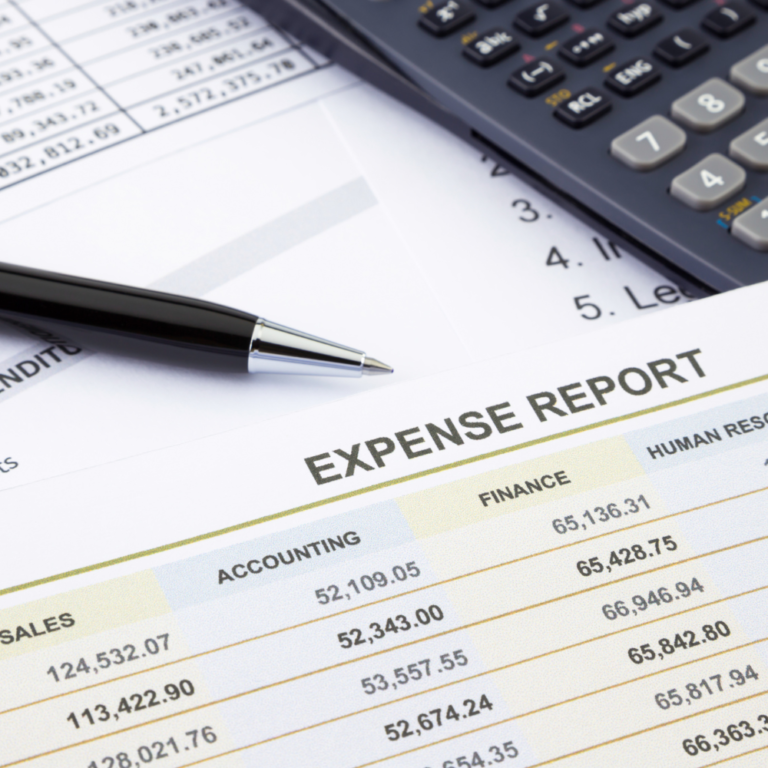Introduction
Every business activity comes with associated costs. Whether it’s business travel or buying office supplies, these expenses matter. Tracking these costs effectively is essential for any business. The tool that aids in this process? Expense reports. This blog post delves into what an expense report is and its vital role for both businesses and employees.
Why Expense Reports Are Necessary
For Employees
Expense reports are key for employees. Why? They guarantee you get paid back for any money you’ve spent on work stuff. Whether you’ve bought a flight ticket for a business trip, picked up the lunch tab for a client meeting, or bought office supplies, a good expense report ensures you get every penny back. Plus, it’s a handy tool to keep a record of your spending habits!
For Employers/Businesses
On the flip side, expense reports are useful for businesses too. They provide a clear picture of where the company’s money is going. This can help identify where you might be overspending and where you could possibly save. They’re also a lifesaver during tax season, making sure you’re claiming all those deductible expenses. In short, they’re a handy roadmap to better financial control and efficiency.
Expense reports play an instrumental role in any business. Here’s why:
1. Accurate Reimbursements
Expense reports ensure fair reimbursements for employees. By documenting incurred expenses for work-related activities, they provide a clear record for businesses to refund their staff accurately and promptly.
2. Cost Control
Expense reports also serve as an essential tool for businesses to track their spending over time. By identifying cost-driving factors, they allow businesses to strategize spending reductions and enhance cost-effectiveness.
3. Simplifying Tax Deductions
Accurately recording business expenses is crucial for tax purposes. Expense reports simplify this process by keeping track of all deductible costs, ensuring businesses don’t overpay or underpay their taxes.
What to Include in an Expense Report
A comprehensive expense report should include the following details:
Identifying Information: This includes details of the person filling out the report, such as their name, role, and department.
Date: The date the expense was incurred.
Amount: The total cost of the expense, inclusive of taxes.
Description: A brief account of the business expense, explaining why it was necessary.
Category: The type of expense incurred, such as travel, meals, or office supplies.
Additional Details: Information related to specific clients or projects, explanations for certain expenditures. These details provide greater context and validation for the expenses.
Common Expense Report Categories
Here are some common expense categories:
- Car and truck expenses
- Insurance
- Office supplies
- Travel expenses
- Meals and entertainment
Choosing the right categories based on your business type and operations is critical to ensure accurate and efficient tracking.
How to Fill Out an Expense Report
Filling out an expense report is straightforward with these steps:
- Begin with your identifying information.
- Record the date when each expense was incurred.
- Note down the total cost of the expense, including taxes.
- Write a brief account of the expense, explaining why it was necessary.
- Assign a category to the expense.
- Attach corresponding receipts and submit the report for review.
This process can be further simplified and made more accurate with the use of accounting software or apps.
The Role of Expense Tracking Software
Expense tracking software like SystemX can revolutionize the way businesses handle their expense reports. These digital solutions allow for easy input, tracking, and categorization of expenses. They can save time, reduce errors, and streamline the reimbursement process, benefiting both businesses and employees.
Conclusion
Expense reports are more than just administrative tasks; they’re a critical part of financial management for businesses. They ensure accurate reimbursements, help control costs, and simplify tax deductions. Whether done manually or through automated software, efficient management of expense reports is crucial for business success.
To enhance your business’s financial management, consider implementing an efficient system for managing expense reports. Embrace the right tools and practices to ensure your business remains financially healthy and your employees are reimbursed fairly and promptly. It’s time to master the art of expense reports.

